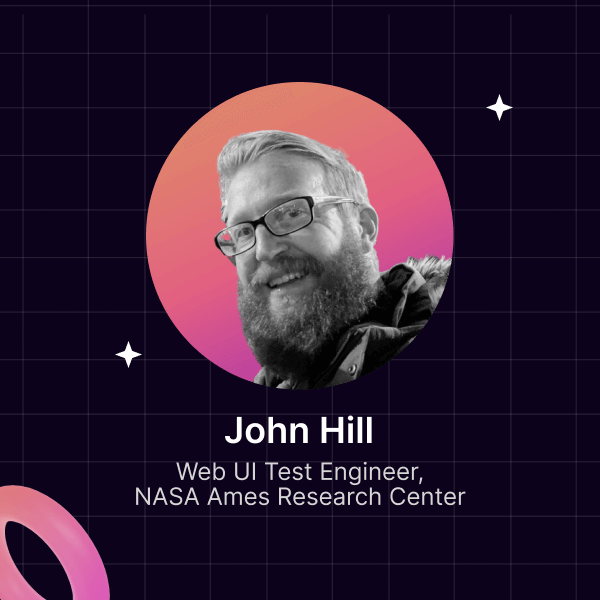
Listen to John Hill talk on Open e2e Test Initiative with Open MCT
The free online Testµ (TestMu) conference by LambdaTest will talk about trends that matter in the testing landscape and will help testers & developers get a glimpse into the future of testing. Over 30+ speakers including community leaders and leading industry experts will join the event to share their thoughts.
More about the speaker
John Hill is a Web UI Test Engineer working at the NASA Ames Research Center on the VIPER Mission's Web-based Mission Control Software. He has 10 years of Web UI Testing experience ranging from Dark Ages of Adobe Flash to the latest-but-somehow-always-out-of-date-Javascript-Framework. John specializations in Web Test Automation, Performance Engineering, and Test Automation Architecture. His passion has always been for Open Source Software and has worked on Jenkins, Ansible, and now on Open MCT.
About the Talk
Open e2e Test Initiative with Open MCT
Open MCT (Open Mission Control Technologies) is a next-generation mission control framework for visualization of data on desktop and mobile devices. It is developed at NASA's Ames Research Center, and is being used by NASA for data analysis of spacecraft missions, as well as planning and operation of experimental rover systems. This advanced application needs an advanced battery of tests… and you!
In this talk, we'll outline how the Open MCT project is leveraging the testing community to write mission critical e2e tests. We'll start with the unique (and not so unique) requirements of Open MCT test automation and how they're addressed with Playwright. Next, we'll detail the approach to open sourcing the tests and associated challenges. We'll end with some lessons learned and detail how you can get started testing NASA Open MCT -- no previous experience with javascript or web testing required!
Outline of the talk:
